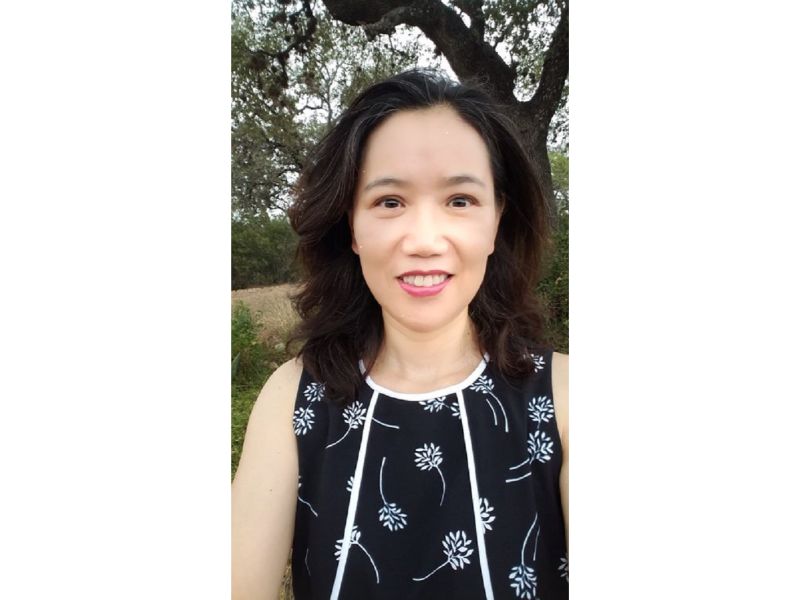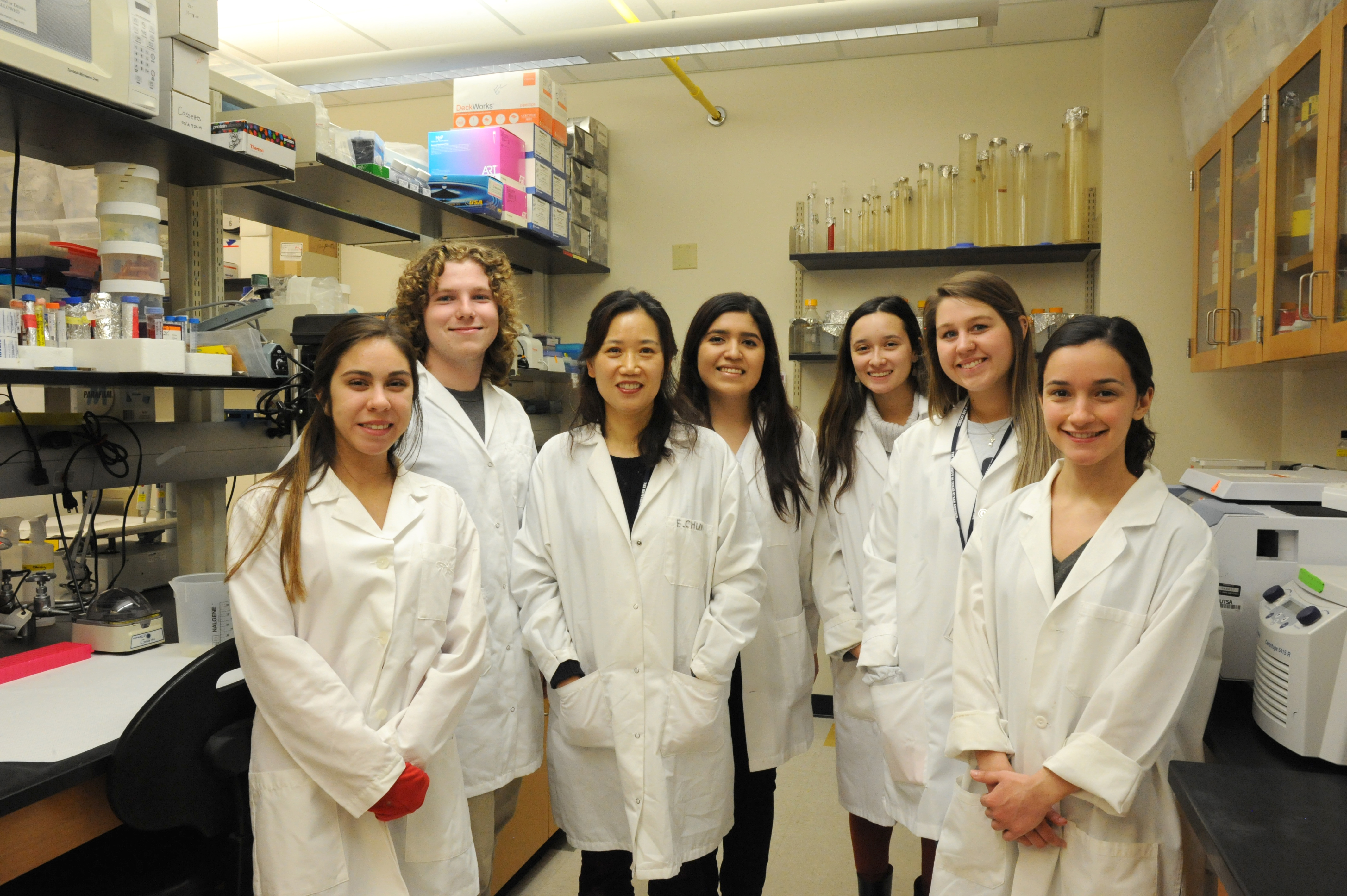Posted on January 5, 2021 by Amanda Cerreto
 Assistant Professor of Kinesiology, Eunhee Chung, has been awarded a $1,419,790 grant from the National Institute of Health (NIH).
Assistant Professor of Kinesiology, Eunhee Chung, has been awarded a $1,419,790 grant from the National Institute of Health (NIH).
Chung's research focuses on the global epidemic of obesity. "Compelling evidence…indicates that maternal obesity negatively influences the metabolic health of offspring and impacts various systems; however, there is a limited study investigating cardiac dysfunction of offspring born from obese mothers," Chung said. Her research aims to explore this relationship further.
With the support of UTSA internal grants and undergraduate and graduate students (Sal Campise, Kassandra Gonzalez, Analiza Morales, Antonio Bollinger, Erin Roye, Jacqueline Gonzalez, Andrea Chinas Merlin, Christina Perez, Jake Lota, Kimberli Garcia, Miguel Faller, and Sarah Mockler), Chung has established a pre-pregnancy and gestational obesity model in female mice in which the male offspring developed glucose intolerance and insulin resistance to a greater extent than female offspring. The results of this proposed study will advance the knowledge of how maternal exercise modifies the cardiac structure, mitochondrial function, and overall heart function under stress conditions; and thus, could provide a new intervention for preventing heart disease associated with childhood obesity.
"I am very fortunate to work with colleagues in the Department of Kinesiology, Health, and Nutrition who always encourage and help each other to succeed," Chung said. “When I joined UTSA in August 2016, I did not have any lab space. Dr. John Zhang, my mentor for the SC1 grant, graciously shared his lab space with me. Dr. Sarah Ullevig, my collaborator in the Nutrition program, is always willing to help and quick to respond right away whenever I have questions. I also appreciate Dr. Monica Trevino, Senior Grant Development Coordinator, who endlessly read and edited my grant applications. Drs. Sara Oswalt and Wan Yao, former and current department chair, encouraged me all the time, even when I gave up to apply for the NIH grant. Their encouragement and support were essential for my persistence.”

Eunhee Chung’s lab group

